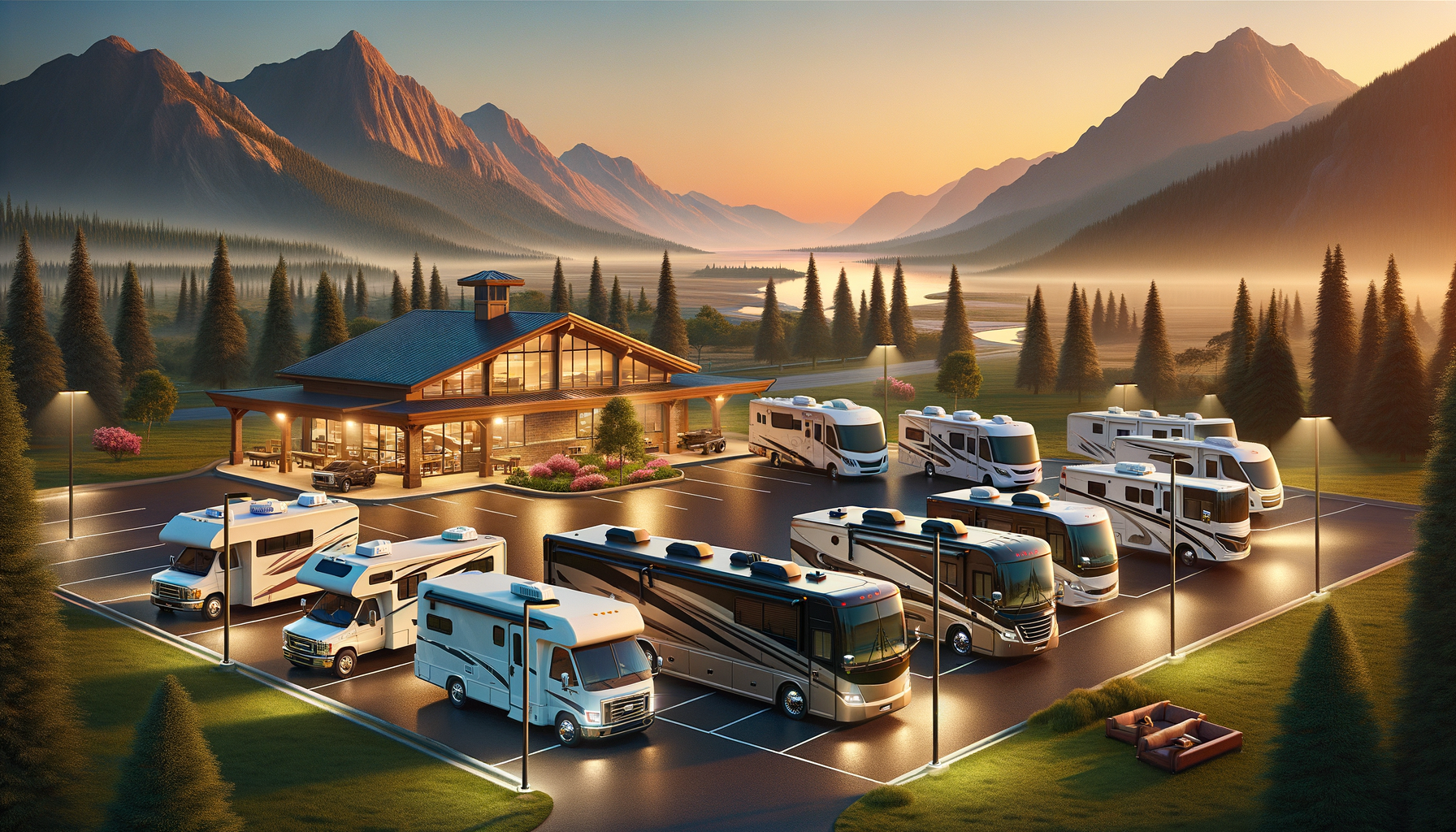Understanding Rent-to-Own for RVs
Rent-to-own agreements for recreational vehicles (RVs), motorhomes, and campers provide a flexible pathway for those dreaming of life on the road. This approach allows potential owners to lease the vehicle with an option to purchase it later. Rent-to-own contracts typically involve a predetermined rental period, after which the renter can opt to buy the RV at a previously agreed price. This method offers several advantages, including the ability to test the lifestyle and vehicle before committing to a full purchase.
One of the key benefits of rent-to-own is the opportunity to experience the RV lifestyle without an immediate large financial outlay. This can be particularly appealing for individuals who are new to RVing and wish to ensure it suits their lifestyle before making a significant investment. Additionally, a portion of the rental payments often contributes toward the eventual purchase price, making it a financially attractive option for many.
Moreover, rent-to-own agreements can be more accessible for individuals with less-than-perfect credit, as traditional financing options might be challenging to secure. This alternative financing method provides a viable path to ownership, helping more people realize their dream of RV travel. However, it is crucial to thoroughly read and understand the terms of the contract, including any maintenance responsibilities and potential penalties for early termination, to avoid any unexpected surprises.
The Financial Implications of Rent-to-Own
While rent-to-own options offer flexibility, it’s important to consider the financial implications involved. Typically, the rental payments in a rent-to-own agreement are higher than standard rental costs, as they include a premium for the option to purchase. This premium can vary widely depending on the terms of the agreement and the specific RV in question.
Potential buyers should also be aware of additional costs that may arise during the rental period. These can include maintenance and repair expenses, insurance, and storage fees when the RV is not in use. It’s essential to factor these into the overall cost of the rent-to-own agreement to ensure it remains within your budget.
Another financial consideration is the depreciation of the RV’s value over time. Unlike traditional real estate, RVs depreciate, which means the vehicle’s value will decrease as the rental period progresses. It’s crucial to evaluate whether the agreed purchase price at the end of the rental period reflects the RV’s market value. Conducting thorough research and possibly seeking professional advice can help ensure you’re making a sound financial decision.
Despite these considerations, rent-to-own can still be a cost-effective way to transition into RV ownership, especially for those who plan to use the vehicle frequently. The ability to spread out payments over time and the potential to lock in a purchase price can offer peace of mind and financial predictability.
Comparing Rent-to-Own with Other RV Acquisition Methods
When considering how to acquire an RV, it’s beneficial to compare rent-to-own with other common methods, such as outright purchase, traditional financing, and leasing. Each method has its advantages and disadvantages, and the right choice depends on individual circumstances and preferences.
Outright purchase is the most straightforward method, offering immediate ownership and the freedom to modify the RV as desired. However, it requires a substantial upfront investment, which may not be feasible for everyone. Traditional financing allows for ownership with more manageable monthly payments, but it typically requires a good credit score and may involve interest payments that increase the overall cost.
Leasing an RV, on the other hand, is similar to rent-to-own but without the option to purchase at the end of the term. Leasing can be a good choice for those who want to enjoy the RV lifestyle without the long-term commitment of ownership. However, it lacks the investment aspect of rent-to-own, where rental payments contribute toward eventual ownership.
Rent-to-own stands out by combining elements of leasing and financing, offering flexibility and a path to ownership without the need for immediate large financial commitments. It allows individuals to experience the RV lifestyle firsthand, providing valuable insights into whether it’s a suitable long-term choice. Ultimately, the decision will depend on personal preferences, financial situation, and long-term goals.
Conclusion: Is Rent-to-Own Right for You?
For those dreaming of hitting the open road with an RV, motorhome, or camper, rent-to-own offers a compelling alternative to traditional purchasing methods. It provides flexibility, accessibility, and an opportunity to experience the RV lifestyle before making a full commitment. However, it’s essential to carefully evaluate the financial implications and compare it with other acquisition methods to determine the best fit for your needs.
By considering your financial situation, lifestyle preferences, and long-term goals, you can make an informed decision that aligns with your aspirations. Whether you’re a seasoned traveler or new to the world of RVing, rent-to-own could be the key to unlocking a world of adventure and exploration.




Leave a Reply